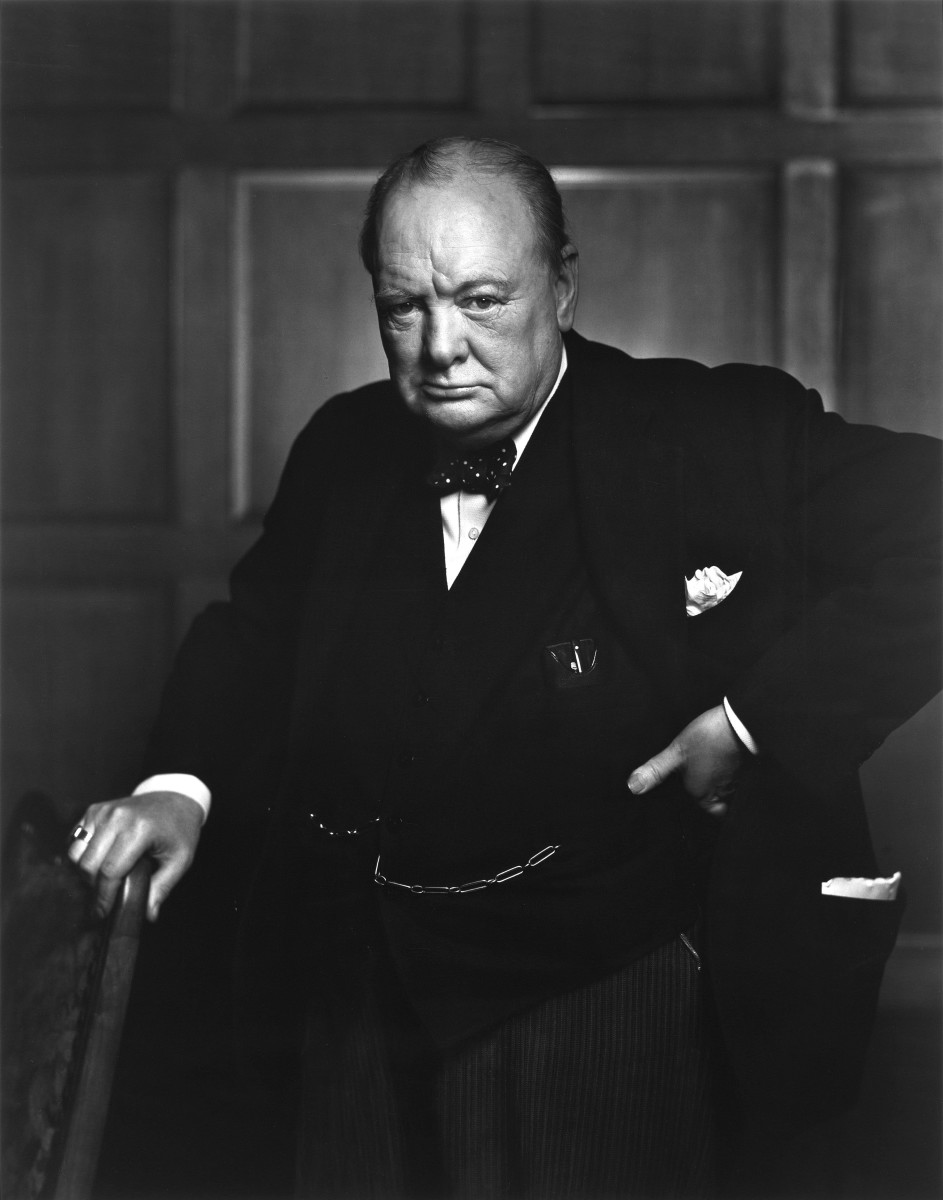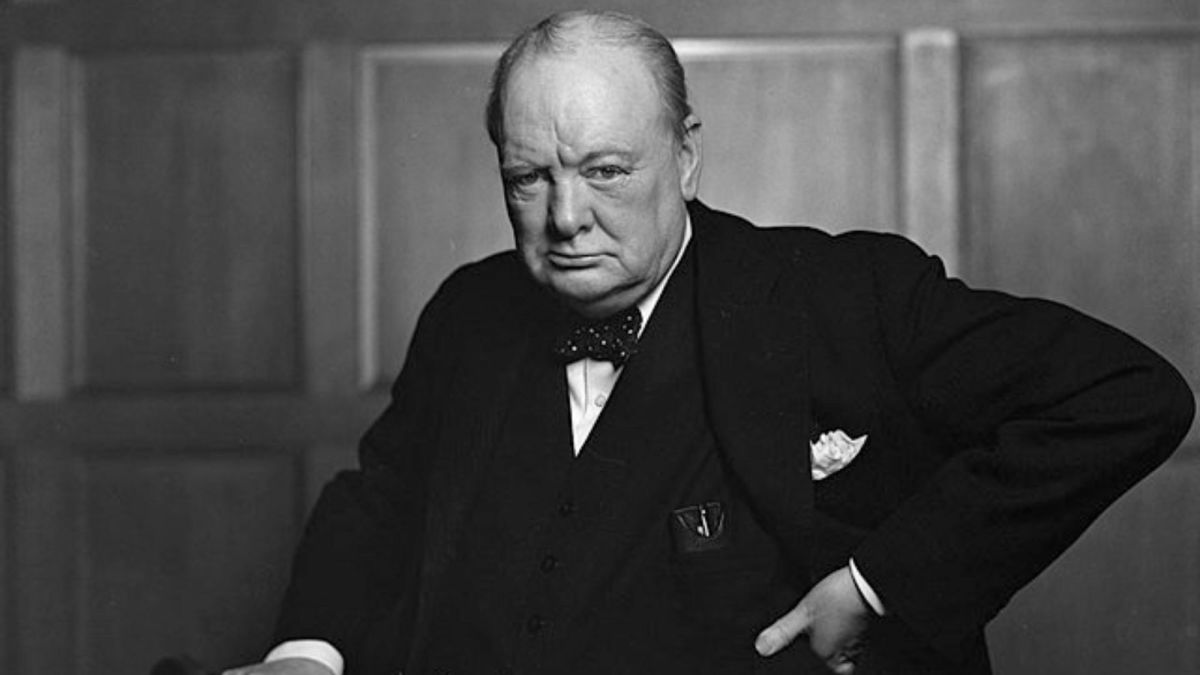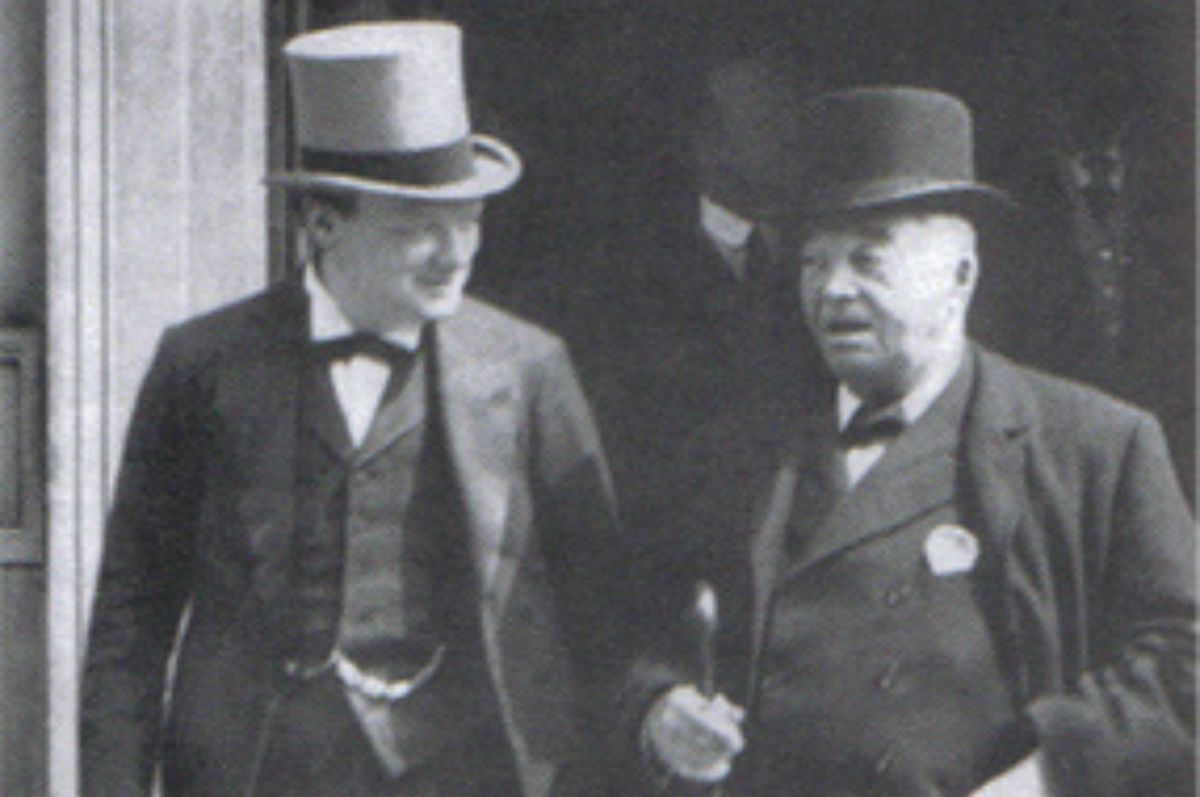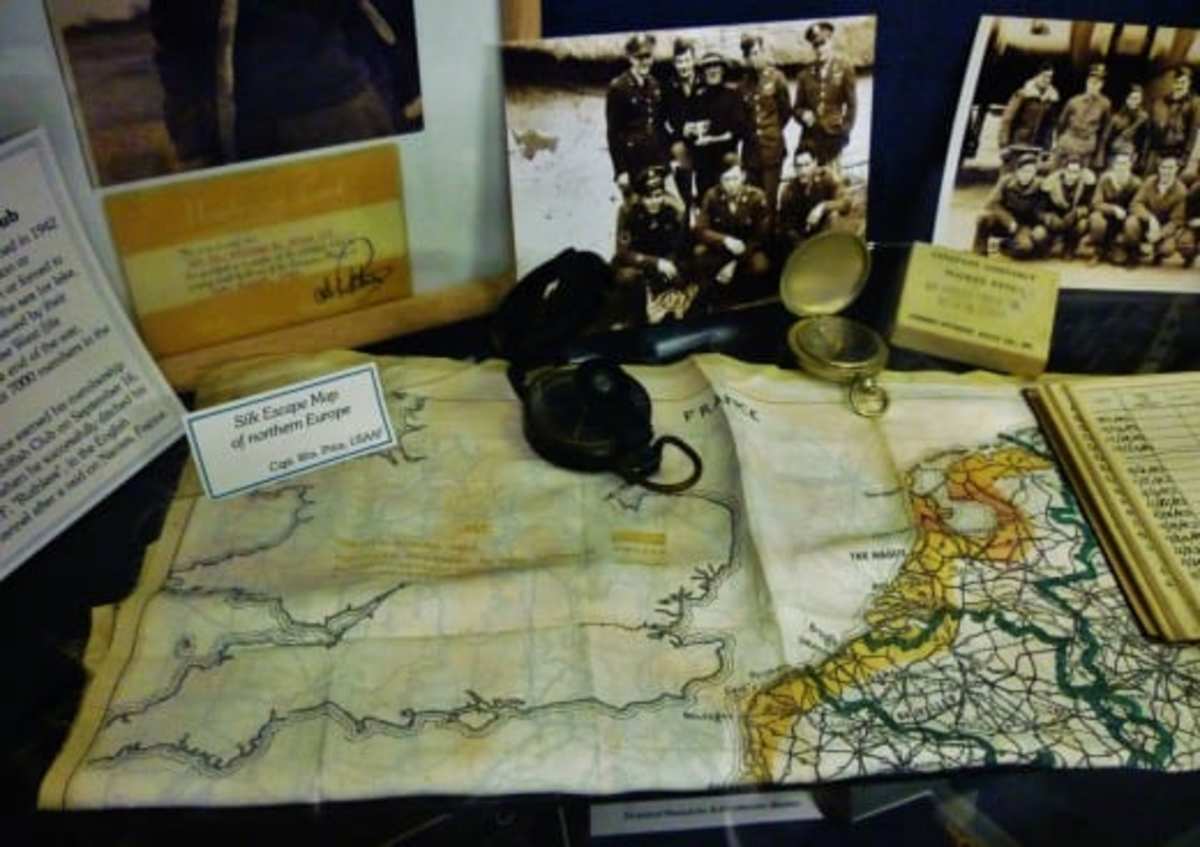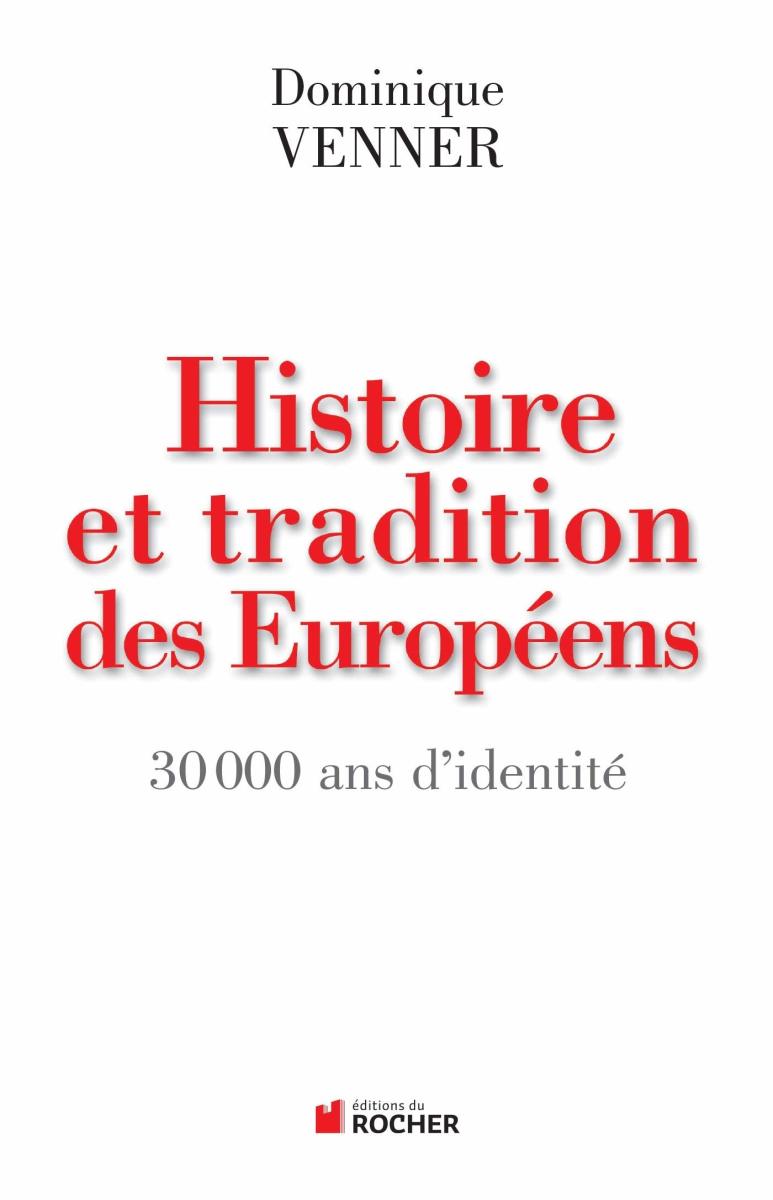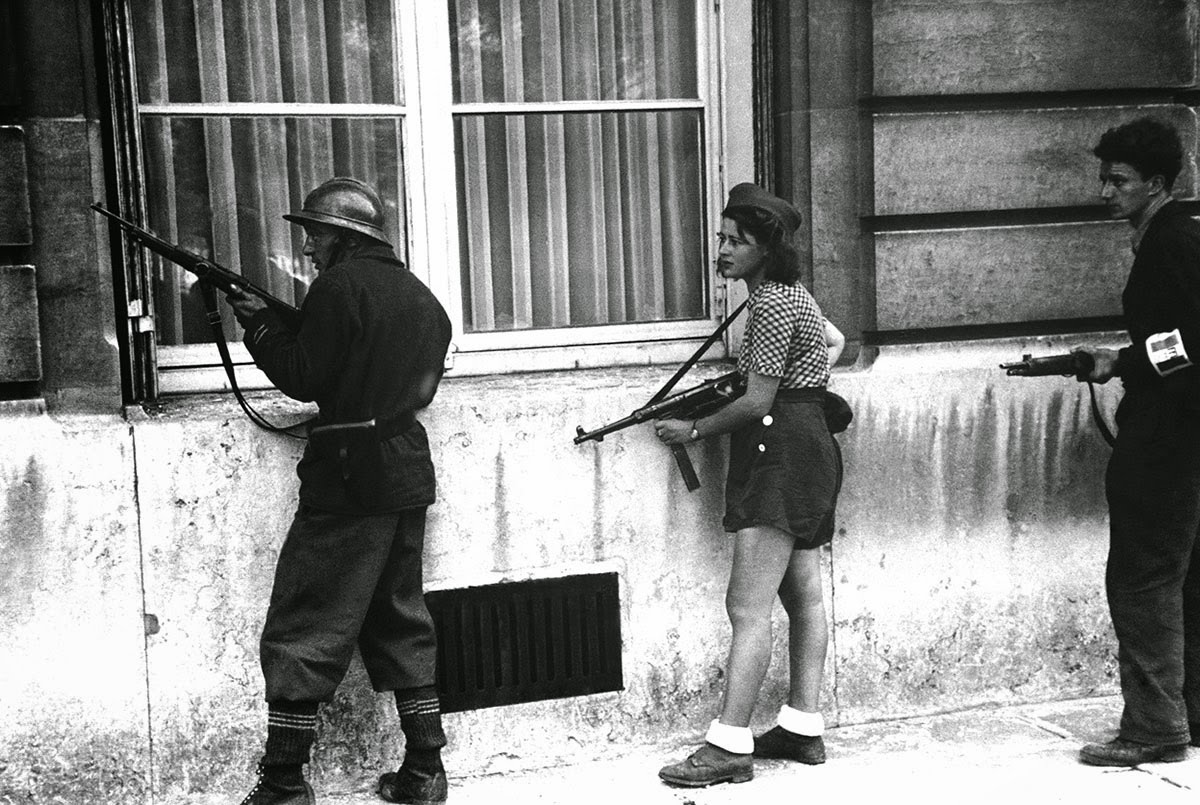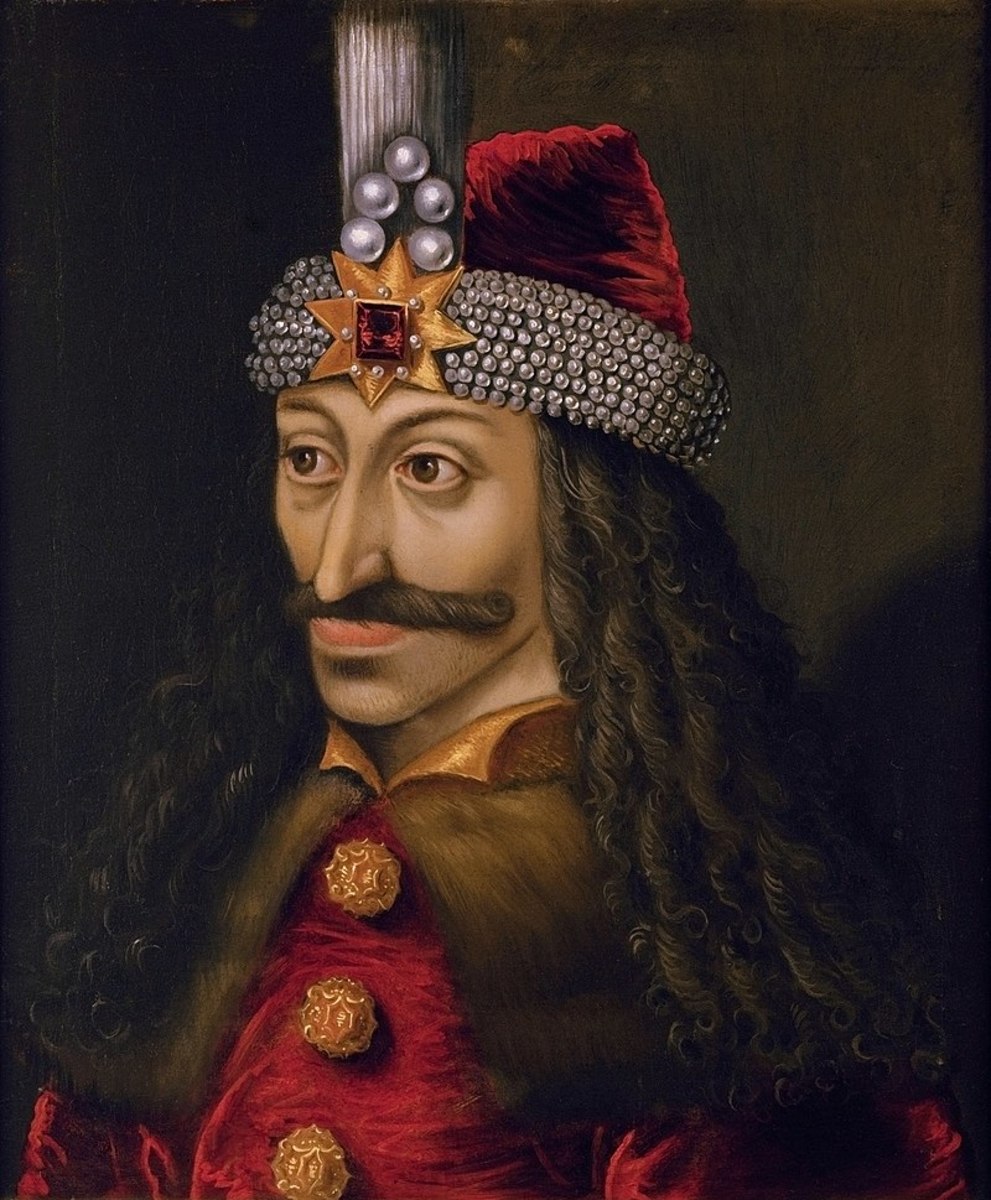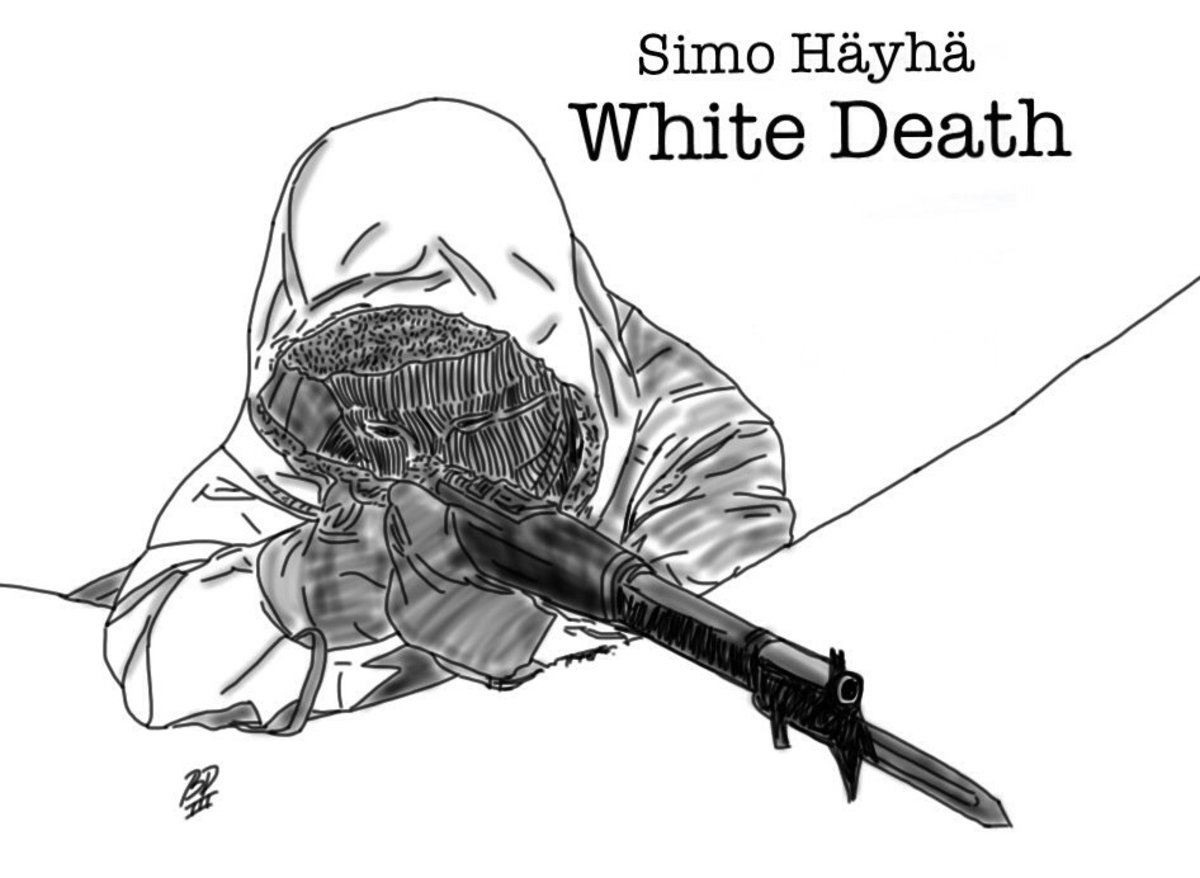- HubPages»
- Education and Science»
- History & Archaeology»
- Military History
Biography of Winston Churchill & His Role During World War II - Achievements in European History
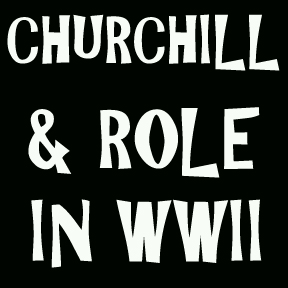
Winston Churchill (1874-1965) is best known for his pivotal role during World War II; although Churchill was also an officer in the British Army, renowned writer, artist, and statesman.
A man of many accolades, Winston Churchill (1874-1965) became British Prime Minister, received the Nobel Prize in Literature, and received the distinction of becoming an honorary United States citizen in 1963 by order of President Kennedy. Churchill led the life of his stories—but his life also serves the greater purpose of defining a significant moment in the history of the world. With that said, a close look will be taken into his achievements throughout his life and the impact his actions had on European and American history, followed by his capacity and accomplishments during World War II, and the political and social blunders that ruined his life-long career time and again.
Winston Churchill's Family - Early Influences
To understand the man Churchill became, a look must first be taken into his family, and the men whom he sought to emulate—his father, Lord Randolph Churchill, and his many generations past, cousin, John Churchill, First Duke of Marlborough who achieved his esteem in the late sixteen hundreds and early seventeen hundreds. First Duke John Churchill is best known for being a warrior of great renown and a statesman, but who began his career as a lowly squire in England. Churchill was so enamored by his late cousin that he wrote a biography entitled “Marlborough: His Life and Times. In writing this biography, Churchill merged himself with the subject of it, until in the last volume it becomes a veritable apologia pro vita mea (or, self justification). He will never concede that his ancestor was wrong, or was actuated by unworthy motives: to have done so would have been to question his own conduct" (Ingram, 1954, p. 57).
Churchill’s book “defends Marlborough on all counts, and in which not a single point is conceded to his critics. Its author has even convinced himself that John Churchill’s desertion of James II was due to his devotion to the Protestant religion, and has expressed this opinion in conversation: hero-worship could hardly go further than that" (Ingram, p. 57). Even further, “as a leader in war Winston Churchill drew much of his inspiration from his ancestor, so that his respect for Marlborough may without exaggeration be described as one of the formative influences of his statesmanship" (Ingram, p. 57). Indeed, Churchill’s hero-worship can nearly be seen as a direct result of the actions and events from his own life, for, in ways nearly uncountable, Churchill’s own life mirrors that of First Duke John Churchill—and it seems, Churchill may have created those parallels with that very intention.
As for Churchill’s father, “the influence of his father’s life and ideas was very strong with him then; he admired Lord Randolph’s courage and the principles for which he fought…Lord Randolph had used the weapons of sarcasm, ridicule, bluntness and even sheer rudeness against those whom he disliked in public and private. He would do the same" (Ingram, p. 3-4). Just as Churchill sought to emulate First Duke John Churchill, so too did he place high esteem in following in his father’s footsteps and actions, taking it upon himself to emulate even his father’s attitude against those who sought his oppression. From this, Churchill became a very powerful man indeed, despite the considerable downfalls that he would see during his career.
However, not all emulation brings glory, for “it must be admitted that Lord Randolph, for all his brilliance, public spirit and contribution to the democratization of the Conservative Party, was not a good model, in his relationship to his colleagues, to follow.” Churchill found himself the joke of every political agenda and, in taking his father’s attitude, he “enabled his enemies to say that he was only another edition of his father and would go the same way" (Ingram, p. 4). Fortunately, Churchill worked his way out of this mess by adopting a different, more peaceable attitude towards friends and foe, but he maintained his father’s ideals and strengths as best as he could manage throughout his career.
Churchill Learns Politics / Setbacks in Early Career
By 1905, Churchill “had been a soldier on active service, a war correspondent on more than one front, a prisoner of war in South Africa, and was the author of four books, with a fifth—the life of his father—in preparation" (Ingram, p. 3). His works comprised mostly non-fiction accounts of the First World War (appearing in four volumes from 1923-1929), entitled The World Crisis, World War II (appearing in six volumes from 1948-1954), and a History of the English-Speaking Peoples (appearing in four volumes from 1956-1958). He also wrote one novel, Savrola in the year 1900, a non-fiction biography of his father, entitled Lord Randolph Churchill, and dozens of volumes of speeches (Frenz, 'Nobel'). For his unparalleled accomplishments, Churchill was awarded the Nobel Prize in Literature.
However great his successes, Churchill would experience many major disappointments and setbacks in his life and career. The beginning of the worst was a “reverse that sent Churchill from the Admiralty in 1915…that shook the oak of his manhood" (Broad, 1958, p. 19) and sent him into the greatest depression of his life. His defeat occurred, when, he was serving as First Lord of the Admiralty as was “responsible, politically, for the direction of the fleets upon which Britain’s survival depended. He had been the strategic prompter in the Cabinet of the Prime Minister…[and as the] most vigorously active minister of the Asquith Ministry, he conceived himself to be bearing a weight of responsibility for which, under Providence, he had been specially prepared" (Broad, p. 19). But his position was not safe, for, the Tories had a mind to destroy his career and they “delivered an ultimatum to Asquith Ministry—[that they] must dismiss Churchill from the Admiralty,” which, bowing down to the pressure, they quickly made happen. Churchill was no longer First Lord.
In this moment came Churchill’s greatest depression, as it was “a devastating shock, the most shattering humiliation in [his entire] career. Lucifer’s was a greater fall, but Lucifer found his consolations—‘better to rule in hell than serve in heaven.’ Churchill suffered the agonies of a tortured soul. Having found minor relief in painting, he soon left the scene of politics to go a’soldiering in the trenches" (Broad, p. 20). Churchill, as he would later discover in life, and is commonly noted in his numerous biographies, was a man of the moment, called upon to make and deliver great change within the world, and then discarded as soon as the opportunity arose. Unfortunately, there was not only nothing he could do about his frequent dismissals, but he was destined to repeat this process (of glory then discharge) a few more times yet in his life.
More, “once he had been forced to resign as First Lord of the Admiralty, Churchill was gradually removed from the focus of power and influence in the Cabinet, and was no longer a party to the strategic management of the war" (Ben-Moshe, 1992, p. 71). Truly, this moment in his downfall can be attributed to his emulation of his father, for Churchill had simply turned one too many people of power against him by this point in his career. If anything can be learned (and there are probably thousands of lessons available) from Churchill’s time in power, it is the age-old maxim that ‘you should treat people as you yourself would like to be treated.’ In this, Churchill failed to understand the basic pendulum of politics—which has more to do with social constructions and relationships than actual politics.
Churchill Does Not Compromise
However, by June 1917 Churchill found his way back into government as “Minister of Munitions…but it did not prevent him from continuing to express firm—albeit not always clear or coherent—opinions on the conduct of war strategy" (Ben-Moshe, p. 71). Despite his dismissal from his former position, Churchill was a man who knew the business of war, and even though he was no longer called upon to formulate strategies and opinions, he still, by proxy, had a requirement to express his opinion. For, while he was forcibly removed from office, it wasn’t due to incompetence, and Churchill knew what he was talking about.
In fact, Churchill “had begun to think in terms of total war before anyone else in Britain. Early in the 1930’s he wrote: ‘I have always urged fighting wars and other contentions with might and main till overwhelming victory, and then offering the hand of friendship to the vanquished" (Ben-Moshe, p. 71). This ideal became the foundation for his influence in both World War I and World War II and was unparalleled in that, for the most part, war was not an option to be taken lightly—yet, in war there must be compromise. But for Churchill, compromise did not exist for the enemy.
Churchill's Belief that War Should be Fought without Mercy
It is now commonly known that Churchill shared correspondence with many major leaders in the world, including President Franklin D. Roosevelt and even, after the war, President Dwight D. Eisenhower. However, at the time of Churchill’s correspondence with Roosevelt, their relationship was not known and their letters were kept secret. Indeed, one of the “most extraordinary aspects of World War II was the high degree of cooperation achieved between Great Britain and the United States" (Loewenheim, Langley, & Jonas, 1975, p. 3). Moreover, “as more and more of the documents of the period are opened to public view, it becomes increasingly clear that much of this unique instance of cooperation resulted from the accident of history that brought Roosevelt and Churchill to positions of leadership at a critical juncture in world history and from the personal relationship that ripened between the two men during a time of common emergency" (Loewenheim, Langley, & Jonas, 1975, p. 3).
More, it is well known that it is ultimately rare to “have two world leaders worked together so closely or attained such a degree of intimacy" (Loewenheim, Langley, & Jonas, 1975, p. 3). This life-long friendship “first developed through one of the most extensive and comprehensive correspondences between world leaders in all history. In the five and a half years between the outbreak of war in Europe and the death of Roosevelt more than 1,700 letters, telegrams, and other messages—over 700 from Roosevelt and over 1,000 from Churchill—passed between the two men, an incredible average of nearly one each day" (Loewenheim, Langley, & Jonas, 1975, p. 3). Their letters did not even have time to arrive before the friends and world leaders sought to share their actions, dreams, and ideals with each other. The content of the letters, for their part, is extraordinary, “while some were, to be sure, oneliners— Roosevelt’s retort ‘Some Baby!’ on March 30, 1943, is a fine example—others ran for five pages and more. Churchill, who usually ranged wider than did the President and wrote less tersely, needed fifteen pages—plus an appendix—to describe the war situation on December 7, 1940" (Loewenheim, Langley, & Jonas, 1975, p. 4). Clearly, their relationship was deeper than colleagues brought together in a tense situation where both of their countries had conflicting ideals and plans for how best to end the war—they were friends without parallel.
Churchill’s war-time strategy “rested on two foundations. The first…was his ambition to achieve a synthesis between the ‘continental’ and ‘maritime-peripheral’ schools. The second was his opposition to compromise peace and his insistence on the necessity for Germany’s decisive defeat" (Ben-Moshe, p. 71). Churchill believed that war should be fought without mercy—for the total annihilation of his foe, which ultimately, was his defining moment against Hitler and Nazi Germany because, where others would have negotiated peace, Churchill sought to end the threat, once and for all. To not only vanquish the enemy, but grant his country a victory to be proud of—a victory that would make other potential enemies think twice about interfering with his nation.
Churchill's Victory - How to Survive and Prevail
Churchill was defined as a veritable luminary “in the plenitude of his powers when in 1940 our world seemed to be falling to pieces about us. It was then that the diverse strands of his character were fused together and he emerged as the indomitable leader of the British people" (Broad, p. 15). Without exception, Churchill took the lead and refocused the country in its greatest time of need, employing his skill set in a manner most often prescribed to Presidents of the caliber of Abraham Lincoln and Franklin Delano Roosevelt. He was a leader from whom “we drew comfort and inspiration…at the time of our peril. Without need to brace himself to meet the emergency of catastrophe he stood there in his solid strength. By his bearing, resolute, unflinching, imperturbable, he gave an example that steadied us in the hour of our adversity, showing us the way to survive and to prevail" (Broad, p. 15). It has even been said that Churchill’s very life events and actions led him to fulfill this consequential moment in history.
Further, Churchill was a unique leader in that he was “emotional, stirred by the thought of human suffering, [he] was easily moved to display his feelings. During the Blitz he was often seen standing with tears fast falling, as he brooded over the losses and sufferings of the victims of the bombs" (Broad, p. 18). Leaders are never seen showing such emotion; however, in this empathy for mankind, Churchill’s character is defined. A man who hates the war he seeks to win is a man who deserves the mantle of leadership. In this, Churchill was a leader, a man, to be admired.
On December 6, 1945, Churchill cited that “I only remain in politics because I think it my duty to try to prevent the great position we won in the war being cast away by folly, and worse than folly, on the morrow of our victory" (Lambakis, 1993, p. 163). Churchill believed that he had something to give to the world, and not only was he right, but he was always victorious in his strategies well. For his part, Churchill “as he consistently demonstrated throughout his career, possessed seemingly limitless faith in his own abilities to shape the world around him. It was the duty of statesmen, he believed, to educate themselves in the ways of the world, to recognize the actions that may lead to international hostilities and to make a tolerable peace their aim" (Lambakis, p. 163). Further, Churchill understood that the “responsibilities of the statesman are great, for his decisions affect the lives of many millions" (Lambakis, p. 163).
Churchill's Fall from Grace - Dismissal from Office
Churchill’s fall from grace came as a result of the “1945 victory in Europe…[with] allies to East and West, Britain had emerged triumphant over Hitlerism. Then, before the echoes of exultant applause had died away, he was dismissed by the people he had led" (Broad, p. 19). Even though held in the same esteem as Presidents Abraham Lincoln and Franklin D. Roosevelt, Churchill did not have the staying power that most significant leaders attain. His fall was an incredible blow for the hero of a country. As it happens, “gratitude and admiration, we know, are no permanent emotions in politics, but no man who had served his countrymen so faithfully was ever so summarily dismissed. Harsh as was his treatment, he maintained his composure. No word of protest or reproach escaped him" (Broad, p. 19). As a testament to his character, “the architect of victory took his place among the fallen on the political field as if it were part of the accustomed daily round" (Broad, p. 19). Perhaps he expected to be summarily dismissed by the people and country that he had led to victory, but, in truth, his actions in dismissal demonstrate more about his character than his leadership abilities.
Between the years of 1940-1945 and 1951-1955, Churchill served as the British Prime Minister. In the first run of office, he spent his time in correspondence with President Franklin D. Roosevelt, which follows that his second run in office had him in correspondence with President Dwight D. Eisenhower. While it can hardly be said that Churchill’s relationship with Eisenhower was close to that of Roosevelt, much can be said about the state of their countries during a reformative period. Indeed, “the correspondence is perhaps for this reason pensive and philosophical in many places as well as concerned with everyday situations. In this respect the Churchill-Eisenhower correspondence differs somewhat from the Churchill-Roosevelt correspondence" (Churchill & Eisenhower, 1990, p. 209). That correspondence, “which, while immensely rich in its coverage of virtually all aspects of the World War II relationship and dealing with events of more immediate vital significance than the issues of the 1950’s, is concerned to a greater extent with day to day matters and is, consequently, generally less reflective" (Churchill & Eisenhower, p. 209). The requirement for communication led their conversations, and as their countries were celebrating peace and the rise of such movements as materialism, there was little need for strategy and news.
Churchill's Death and Role in European History
After World War II, Churchill found himself hard pressed to keep up with the tasks of Prime Minister and special correspondent to Dwight D. Eisenhower, yet he understood the unique position he was in to keep the peace between Britain and the United States following such a detrimental war. But, the task was beginning to harm his health. By 1953, Churchill experienced his second of two strokes which ultimately impaired his ability to walk and talk. The stroke itself was “disguised from the public and from most of his colleagues. A vague, bland medical report regarding the prime minister’s illness was issued to explain the postponement of the Bermuda Conference" (Churchill & Eisenhower, p. 81). The reason behind hiding his condition from even Dwight D. Eisenhower himself was never admitted to, but, for all his power, it would seem that Churchill did not want to seem weak in the eyes of those he was counseling in war-time strategies.
By 1959, Churchill found himself, yet again, falling from his position of grace. By this time, he was about 85 years of age, and the people began to lose faith in his ability to lead, especially since he had been suffering from strokes that impaired his ability to walk to the degree that he now required a wheelchair. However, a momentous moment came for him when, in 1963, President John F. Kennedy named Churchill an honorary citizen of the United States (Frenz, 'Nobel'). Winston Churchill died in 1965 after suffering from a third stroke.
Overall, upon closer inspection, the significant perspectives of Winston Churchill’s role in European history serve to define his life-long accomplishments and subsequent fall from grace as the world’s most inspiring and intellectually uncompromising leader. Churchill’s rise and glory, despite the achievements that he attained for his country, always ended in his professional dismissal from the very job that made him and his country victorious. However, as was seen through this analysis, Churchill brings much to a study of European history in that he, following with an emulation of his long-past cousin, First Duke John Churchill, and his father, Lord Rudolph Churchill, Churchill found himself ascending to the upper-echelons of power, corresponding with familiarity to presidents and strategizing on war-time procedures. Throughout his lifetime, Churchill served as a ubiquitous man, a powerful leader, and a renowned strategist to who even Hitler found his demise.
References
Ben-Moshe, Tuvia. Churchill: Strategy and History. Boulder, CO: Lynne Rienner, 1992.
Broad, Lewis. Winston Churchill: The Years of Preparation. New York: Hawthorne Books, 1958.
Churchill, Winston and Dwight D. Eisenhower. The Churchill-Eisenhower Correspondence, 1953-1955, edited by Peter G. Boyle. Chapel Hill, NC: University of North Carolina Press, 1990.
Churchill, Winston and Franklin Delano Roosevelt. Roosevelt and Churchill: Their Secret Wartime Correspondence, edited by Francis L. Loewenheim, Harold D. Langley, and Manfred Jonas. New York: E.P. Dutton, 1975.
De Mendelssohn, Peter. The Age of Churchill. New York: Knopf, 1961.
Frenz, Horst, ed. Nobel Lectures. Amsterdam: Elsevier Publishing Company, 1969. http://nobelprize.org/nobel_prizes/literature/laureates/1953/churchill-bio.html
Ingram, Bruce, ed. An Eightieth Year Tribute to Winston Churchill: Statesman, Historian, Sportsman, Soldier, and Orator. London: The Illustrated London News, 1954.
Lambakis, Steven James. Winston Churchill, Architect of Peace: A Study of Statesmanship and the Cold War. Westport, CT: Greenwood Press, 1993.
Moir, Phyllis. I was Winston Churchill’s Private Secretary. New York: W. Funk, Inc., 1941.
Rasor, Eugene L. Winston S. Churchill, 1874-1965: A Comprehensive Historiography and Annotated Bibliography. Westport, CT: Greenwood Press, 2000.
Snell, John L. Illusion and Necessity: The Diplomacy of Global War, 1939-1945. Boston, MA: Houghton and Mifflin Co., 1963.
Stevens, Donald G. “World War II Economic Warfare: The United States, Britain, and Portuguese Wolfram,” The Historian 61, no. 3 (1999): 539.


